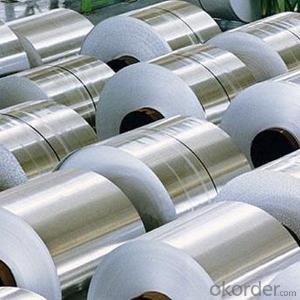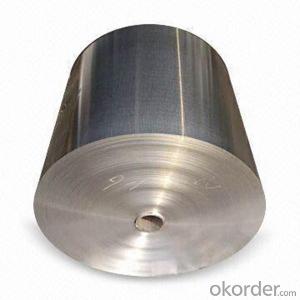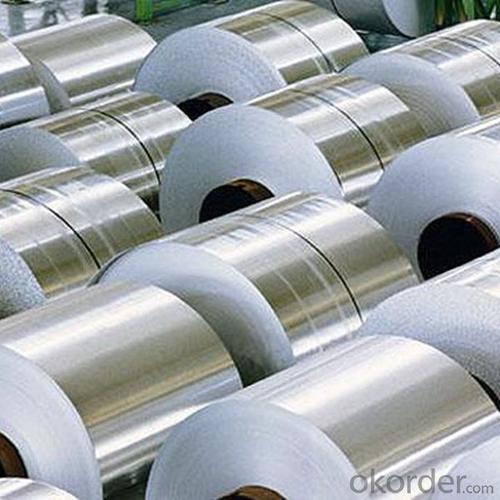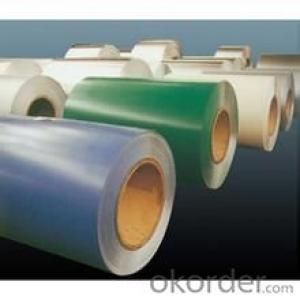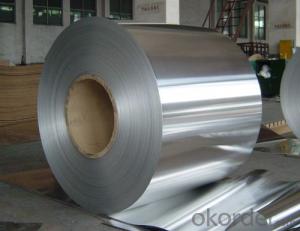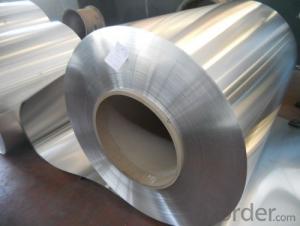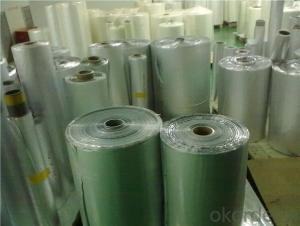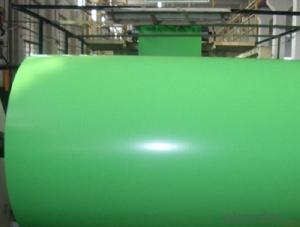Thin Aluminum Rolls Alloy used for Foil Stock
- Loading Port:
- Shanghai
- Payment Terms:
- TT OR LC
- Min Order Qty:
- 5 m.t.
- Supply Capability:
- 10000 m.t./month
OKorder Service Pledge
OKorder Financial Service
You Might Also Like
Item specifice
1. Specification of Thin Aluminum Rolls Alloy used for Foil Stock
characteristics | Application |
1) Super peeling strength | 1) Building exterior curtain walls |
2) Excellent surface flatness and smoothness | 2) Decoration and renovation additions for old buildings |
3) Superior weather, corrosion, pollutant resistance | 3) Decoration of interior walls, ceilings, bathrooms, kitchens and balconies |
4) Even coating, various colors | 4) Shop door decorations |
5) Fireproof, excellent heat and sound insulation | 5) Advertisement board display platforms and signboards |
6) Superior impact resistance | 6) Wallboards and ceilings for tunnels |
7) Lightweight and easy to process | 7) Industrial materials, materials for vehicles and boats |
2. Application of Thin Aluminum Rolls Alloy used for Foil Stock
(1).Interior: wall cladding, ceilings, bathrooms, kitchens and balconies, shutters, doors...
(2).Exterior: wall cladding, facades, roofing, canopies, tunnels,column covers , renovations...
(3).Advertisement: display platforms, signboards, fascia, shop fronts...
3. Feature of Thin Aluminum Rolls Alloy used for Foil Stock
*Such coil is specially designed to replace aluminum ingot, due to the high export tax of aluminum ingot, the coil has better price than ingot.
*This type of coil can fit customer's remelting furnace just like ingot, no need to make any change to the production line that was previously used for ingot. The standard coil size and weight is very suitable for the feed gate of furnace.
*This type of coil causes less material wastage than ingot when remelted.
*Our coil is made directly from ore, no need to go though the ingot making process, quality is much better than other suppliers who use ingot scrap to make coil.
Be free from Oil Stain, Dent, Inclusion, Scratches, Stain, Oxide Dicoloration, Breaks, Corrosion, Roll Marks, Dirt Streaks and other defect which will interfere with use
4. Certificate:
SGS and ROHS(if client request, paid by client), MTC(plant provided), Certificate of Origin(FORM A, FORM E, CO), Bureau Veritas and SGS (if client request, paid by client), CIQS certificate
5. Image of Thin Aluminum Rolls Alloy used for Foil Stock
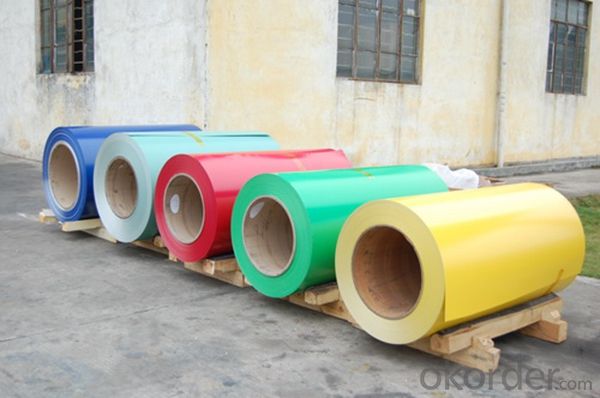
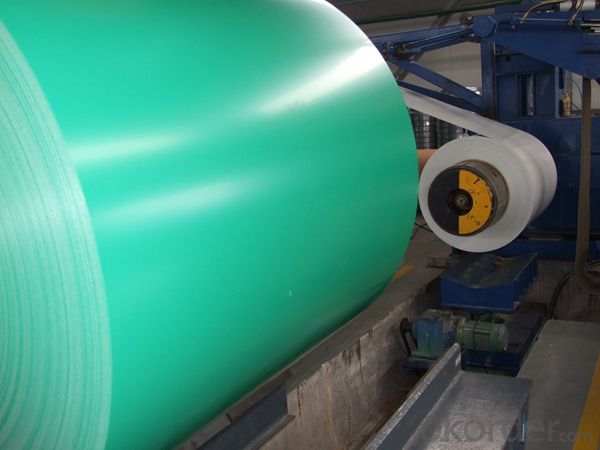
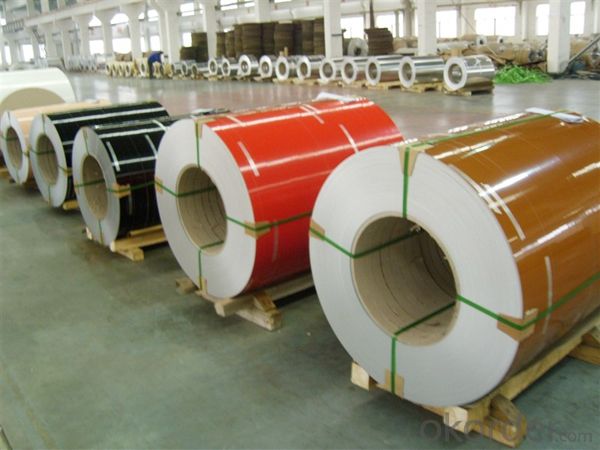
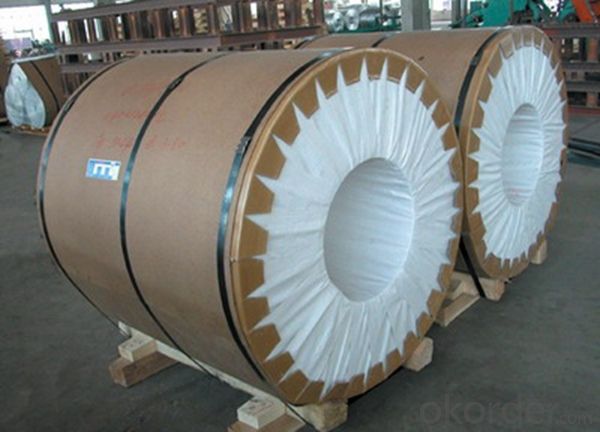
6. Package and shipping of Thin Aluminum Rolls Alloy used for Foil Stock
eye to wall
eye to the wall
with wood pallet (wooded case also available)
7. FAQ
1) What is the delivery time?
Dpends on actual order, around 20 to 35 days
2)What is the QC system:
We have QC staff of 20 persons and advanced equipment, each production is with MTC traced from Aluminum ingot lot.
3) What market do you mainly sell to?
Australia, America, Asia, Middle East, Western Europe, Africa etc
- Q:We want to buy an AirBake insulated aluminum pizza pan. What is insulated aluminum? We want to make sure that it is not something toxic like the non-stick material on pans.
- AirBake is available either natural (just plain aluminum) or nonstick, which is coated with a similar material to other nonstick cookware. What's insulated about it is this: The pan is actually two layers separated by an air pocket. If you put it directly over a heating element, the lower layer heats the air inside, which heats the upper layer. A single-ply aluminum sheet will get very hot and tend to burn the pizza, because it absorbs radiant energy from the element more quickly than the pizza can conduct it away. The insulating air layer slows down the heat transfer and helps to keep your pizza from burning. So if you prefer non-non-stick cookware, get the AirBake Natural line.
- Q:Why do we need aluminum when cooking in the oven at all.
- Function Of Aluminium Foil
- Q:What are the different yield strengths of aluminum coils?
- The grade or alloy of aluminum used can cause variability in the yield strength of aluminum coils. Aluminum is available in various grades, including 1100, 3003, 5052, and 6061, among others. Each grade possesses its own unique properties, which include differing yield strengths. For example, the 1100 grade of aluminum exhibits a relatively low yield strength of approximately 12,000 psi. This particular grade is typically utilized in general-purpose applications where high strength is not a primary requirement. Conversely, the 6061 grade of aluminum demonstrates a considerably higher yield strength of around 35,000 psi. This grade is commonly employed in structural applications or scenarios that demand greater strength and durability. It is important to acknowledge that the yield strength of aluminum coils can also be influenced by factors such as material thickness and temper. Generally, thicker coils possess higher yield strengths, while various tempering processes can further enhance the strength and other mechanical properties of the aluminum. To summarize, the yield strength of aluminum coils can vary due to the grade, thickness, and temper of the material. When selecting the appropriate aluminum coil for specific applications, it is crucial to consider these factors to ensure optimal performance and structural integrity.
- Q:What are the regulations and standards governing the production of aluminum coils?
- The regulations and standards governing the production of aluminum coils vary depending on the country and region. However, some common regulations and standards include those related to environmental protection, occupational health and safety, quality control, and product specifications. These regulations aim to ensure that the production process is carried out in a safe and sustainable manner, and that the produced aluminum coils meet the required quality and performance standards. Compliance with these regulations and standards is crucial for manufacturers to maintain the integrity and market acceptance of their products.
- Q:How much can i get for a gallon filled with aluminum Tabs from cans
- Aluminum is not sold by the gallon, it is sold by the pound, so you need to weigh what you have to determine what it is worth. Aluminum is not expensive, so the price you can expect is around 30 to 60 cents per pound.. Contact local recycling centers near you to find out what the going rate for is in your area.
- Q:Are aluminum coils suitable for outdoor signage and displays?
- Yes, aluminum coils are suitable for outdoor signage and displays. Aluminum is a durable and weather-resistant material that can withstand various outdoor conditions, including rain, sunlight, and temperature changes. It is also lightweight, making it easy to handle and install for signage purposes. Additionally, aluminum has excellent corrosion resistance properties, ensuring the longevity and aesthetic appeal of outdoor signage and displays.
- Q:Can aluminum coils be used in low-friction applications?
- Yes, aluminum coils can be used in low-friction applications. Aluminum is a lightweight and corrosion-resistant material that has excellent thermal conductivity. These properties make it suitable for various applications where low-friction is desired. In industries such as automotive, aerospace, and HVAC systems, aluminum coils are often used in heat exchangers, evaporators, condensers, and cooling coils. These coils are designed to efficiently transfer heat, while minimizing friction and energy loss. Additionally, aluminum coils can be used in electrical motors, generators, and transformers, where low friction is essential for smooth operation and reduced energy consumption. The lightweight nature of aluminum also helps to reduce the overall weight of the system, leading to improved efficiency. Furthermore, aluminum coils can be utilized in various types of machinery and equipment that require low friction, such as conveyor systems, sliding mechanisms, and bearings. Aluminum's low coefficient of friction allows for smooth and efficient movement, minimizing wear and tear on the components. Overall, aluminum coils are a versatile solution for low-friction applications due to their lightweight, corrosion-resistant, and thermally conductive properties. Their use can lead to improved energy efficiency, reduced maintenance costs, and enhanced performance in a wide range of industries.
- Q:What are the common sizes and thicknesses of aluminum coils?
- Common sizes and thicknesses of aluminum coils vary depending on the specific application and industry. However, there are some standard sizes and thicknesses that are commonly used across various industries. In terms of size, aluminum coils typically range from around 12 inches to 72 inches in width. This range allows for flexibility in accommodating different production processes and equipment. The length of the coils can vary as well, but it is often in the range of 1000 to 6000 feet. As for thickness, aluminum coils come in various gauges, which are commonly measured in inches or millimeters. The most commonly used thicknesses for aluminum coils are between 0.019 inches (0.48 mm) and 0.125 inches (3.18 mm). These thicknesses are suitable for a wide range of applications, including roofing, construction, automotive, and manufacturing. It is important to note that these are general guidelines, and the specific size and thickness requirements may vary depending on the intended use of the aluminum coils. Additionally, custom sizes and thicknesses can also be manufactured to meet specific project requirements.
- Q:How are aluminum coils tested for quality?
- Aluminum coils are tested for quality using a variety of methods to ensure they meet the required standards. One of the commonly used tests is the visual inspection, where trained personnel examine the coils for any visual defects such as scratches, dents, or surface imperfections. Another important test is the dimensional inspection, which involves measuring the thickness, width, and length of the coils using precision instruments. This ensures that the coils are manufactured within the specified tolerances. Additionally, mechanical tests are conducted to assess the strength and durability of the aluminum coils. These tests include tensile and yield strength tests, which measure the maximum load a coil can withstand before breaking or deforming. Bend tests are also performed to evaluate the flexibility and resistance to cracking. Furthermore, chemical composition analysis is conducted to verify the purity and consistency of the aluminum material. This is typically done using spectroscopy techniques, such as atomic absorption or emission spectroscopy, to determine the exact elemental composition of the coils. Surface coating tests are also carried out to assess the quality of any protective or decorative coatings applied to the aluminum coils. These tests include adhesion testing, corrosion resistance testing, and color consistency evaluation. In addition to these traditional tests, advanced non-destructive testing methods are employed to detect any internal defects or flaws in the coils. Techniques like ultrasonic testing, eddy current testing, or X-ray inspection are used to identify any hidden defects without damaging the material. Overall, a combination of visual, dimensional, mechanical, chemical, and non-destructive tests ensures that aluminum coils meet the required quality standards before they are used in various applications such as construction, automotive, or electronics industries.
- Q:i am thnking of building my own aluminum john boat and using the propulsion from a jetski to power it, i was wondering if anyone had taken on a project like this and had a few pieces of advice to offer while i am still in the planning stages. the biggest concern i have right now involves the tunnel for the intake, should i use the original fiberglass from the jetski or build up a tunnel out of aluminum for it?
- While I have not built a john boat of aluminum, I have built or fabricated a lot of other things. If this were my project, and as it is the scoop you are talking about, not the tunnel itself. Aluminum is one of the most expansive metals, and I do not see you being able to seal a fiberglass/aluminum interface with much promise of it holding long term. I would fabricate or mold a new one of aluminum so it would have the same expansion rate as the metal around it. Electrolysis is not an issue, but I think the thermal expansion difference would be on the seals. good luck on your project, sounds fun.
1. Manufacturer Overview |
|
|---|---|
| Location | |
| Year Established | |
| Annual Output Value | |
| Main Markets | |
| Company Certifications | |
2. Manufacturer Certificates |
|
|---|---|
| a) Certification Name | |
| Range | |
| Reference | |
| Validity Period | |
3. Manufacturer Capability |
|
|---|---|
| a)Trade Capacity | |
| Nearest Port | |
| Export Percentage | |
| No.of Employees in Trade Department | |
| Language Spoken: | |
| b)Factory Information | |
| Factory Size: | |
| No. of Production Lines | |
| Contract Manufacturing | |
| Product Price Range | |
Send your message to us
Thin Aluminum Rolls Alloy used for Foil Stock
- Loading Port:
- Shanghai
- Payment Terms:
- TT OR LC
- Min Order Qty:
- 5 m.t.
- Supply Capability:
- 10000 m.t./month
OKorder Service Pledge
OKorder Financial Service
Similar products
New products
Hot products
Hot Searches
Related keywords
